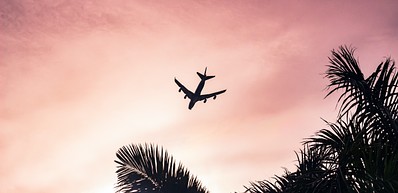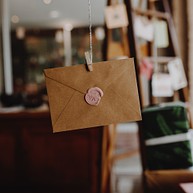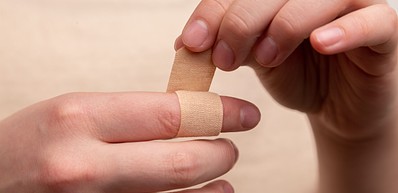
-
![flowering tree in NSW]() Provided by: Ch P/unsplash
Provided by: Ch P/unsplash

Our travel guides are free to read and explore online. If you want to get your own copy, the full travel guide for this destination is available to you offline* to bring along anywhere or print for your trip.
*this will be downloaded as a PDF.Price
€4,95
Best Time to Visit
The guide was updated:On the coast of New South Wales, summer lasts from December to February and can get very hot and busy. Spring (September through November) and autumn (March through May) are great for avoiding the crowds but still being able to enjoy warm days and outdoor activities like sunbathing or surfing at the beach. The former is also the season with a lower chance of rainfall. July is the coldest month, but winter in the Ballina Byron region is still quite mild, with an average minimum of about 12°C.
Useful Information
Digital Travel Guide Download
Our travel guides are free to read and explore online. If you want to get your own copy, the full travel guide for this destination is available to you offline* to bring along anywhere or print for your trip.
*this will be downloaded as a PDF.Price
€4,95

Byron Bay is easily accessible by air with a choice of three airports within a 2-hour drive of Byron Bay. The closest airport is only 25 minutes' drive.
1. The Ballina Byron Bay Gateway Airport (BNK)
This airport is within 5 kilometres of Ballina town centre and is a quick scenic road trip from Byron Bay (25 minutes) and Lismore (30 minutes). Various shuttle buses connect the airport to Byron Bay and other regional destinations.
2. Gold Coast Airport (OOL)
The airport at Coolangatta, just over the border in Queensland, is served by all domestic Australian carriers and some international ones. Various shuttle buses connect to Byron Bay in about 40 minutes and in about 2 hours to Ballina.
3. Brisbane Airport (BNE)
Located at Eagle Farm on the eastern side of Brisbane, this airport is served by all domestic and most international carriers. A light rail runs directly from Brisbane Roma Street transit terminal, which has a choice of buses to Byron Bay. There are also direct shuttles to Byron Bay, which take about two hours.
Read more

Best Time to Visit
On the coast of New South Wales, summer lasts from December to February and can get very hot and busy. Spring (September through November) and autumn (March through May) are great for avoiding the crowds but still being able to enjoy warm days and outdoor activities like sunbathing or surfing at the beach. The former is also the season with a lower chance of rainfall. July is the coldest month, but winter in the Ballina Byron region is still quite mild, with an average minimum of about 12°C.
Read more

Public transport
NSW TrainLink runs two services: the Casino XPT and Brisbane XPT. Both run daily from Sydney, stopping at Casino or Grafton, with connecting coaches to Ballina and Byron Bay.
For local public transport, Blanchs (www.blanchs.com.au) run public bus services around the Byron Bay and Ballina region.
CDC NSW (cdcbus.com.au) also provides local scheduled bus services to Byron Bay, Ballina, Ballina Airport, Lennox Head, Bangalow, Mullumbimby, Billinudgel, Brunswick Heads, Ocean Shores, Lismore and also within Byron Bay township.
Read more

Taxi
It is advisable to check prices before jumping in a taxi, and do not forget to add the per kilometre fare depending on time of day, vehicle type and number of passengers.
You can call Australia’s national taxi booking phone number, 131 008, for both Ballina and Byron Bay taxis.
Read more

Post
Look for the red signs to find a post office or mailbox. Yellow mailboxes are used for express post.
Read more

Pharmacy
In Byron Bay, and Australia more broadly, there are several major pharmacy chains where you can pick up over-the-counter medications, prescription drugs, personal care items, and more. The major pharmacy chains are Priceline Pharmacy, Chemist Warehouse (nearest one in Lismore), TerryWhite Chemmart, Amcal and Blooms The Chemist. The latter three can be found in Ballina. It's always worth checking the opening hours as these can vary, especially on weekends and public holidays.
Read more

Telephone
Country code: +61
Area code: (0)2
Read more

Electricity
Australia operates on a 230/240V supply voltage and 50Hz frequency. The country uses Type I power plugs, which feature two flat pins forming a 'V' shape, along with a grounding pin. This standard is also commonly used in New Zealand, Argentina, China, and several Pacific island nations. Remember to pack a universal adapter if your devices use a different plug type to ensure hassle-free charging.
Read more


